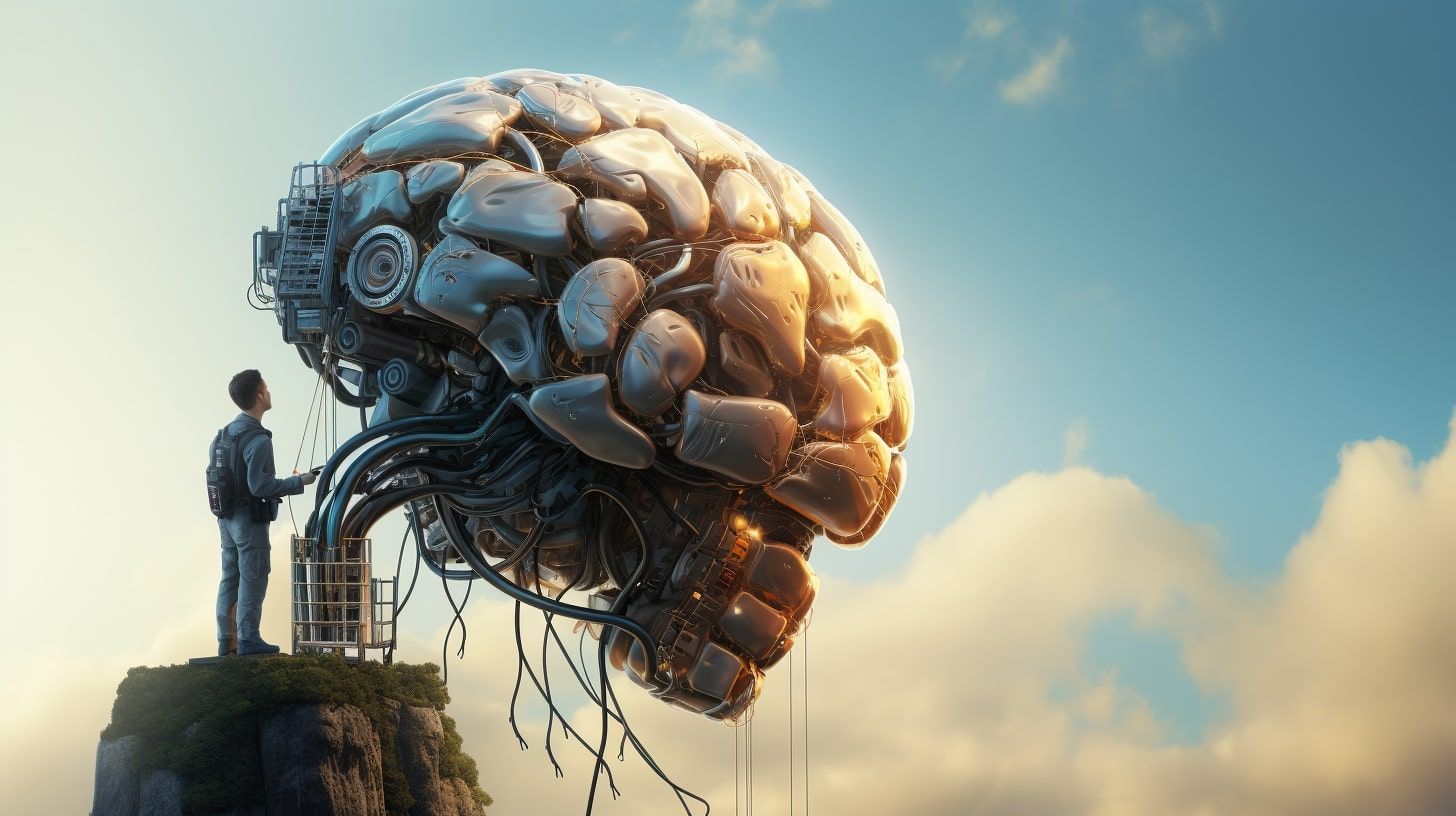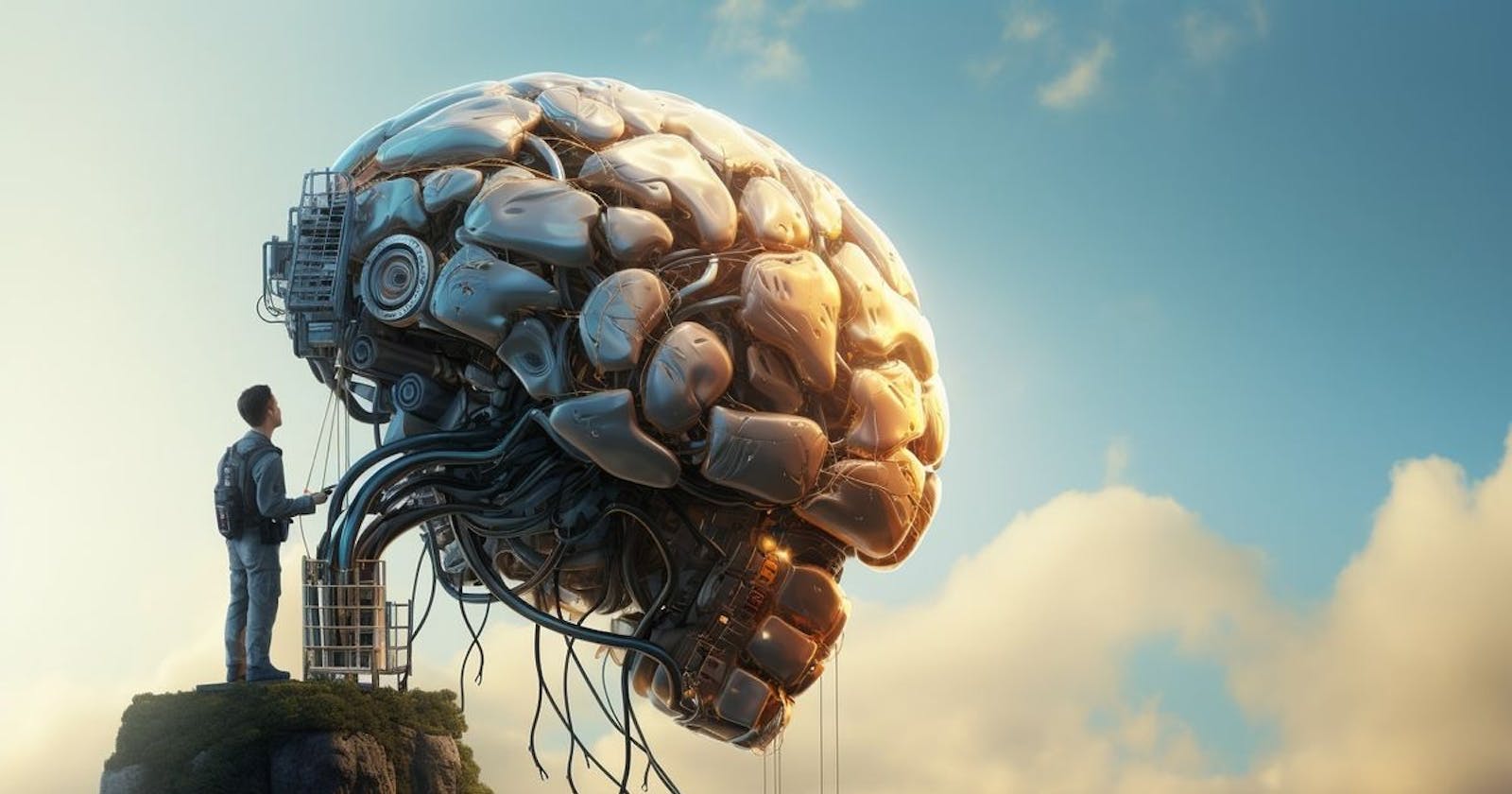Artificial intelligence holds immense potential for transforming industries, but the road to successful implementation is rife with obstacles. From grappling with a talent gap and outdated infrastructure to considering ethical dilemmas, find out what could hold your AI back.
Artificial intelligence is already changing multiple industries. From content creation to education, AI is the future, and there is no telling how far it will go.
Unfortunately, AI implementation presents multiple challenges. Organizations that expect to adopt artificial intelligence successfully need to familiarize themselves with potential obstacles.

Anyone hoping to reach the heights of AI implementation can face significant challenges
1. Not enough AI talent
Let’s start with the talent gap. AI may feel like a new kid on the block, but its practical applications have been around for a while. The first successful use of AI dates back to 1951, when Christopher Strachey created a computer program at the University of Manchester to allow a machine to play checkers. Over 70 years have passed since then, but the demand for AI talent still outstrips supply.
Companies have identified that AI is the future and are investing in long-term in-house training. But the talent pool outside a few established companies is small, and it does not take too long for the best to receive offers to join those companies.
Organizations that haven't yet embraced AI need to catch up, fostering an internal culture for AI development and keeping an eye out for promising talent to bring onboard.
2. Old infrastructure
AI processes vast amounts of data in real time. Such operations require significant resources, which is why outdated infrastructure presents major implementation challenges.

Old technology may not catch fire from running AI, but it will struggle
While forcing devices and software to work beyond their capabilities might result in some positives, outdated equipment will not last long.
An AI revolution starts with compatible infrastructure. Without it, AI will struggle to reach even a fraction of its potential.
3. Costs
Costs that accumulate with AI implementation can take a significant toll on the well-being of an organization.
As mentioned, old infrastructure is one of the obstacles. Upgrading it adds up, especially if an organization decides to upgrade the majority of its equipment.
However, the costs do not stop there. Personnel working on AI require investment. Then there are cases of trial and error, especially early on, when your work is in the beta stage, leading to mistakes that require sweeping up.
Overcoming the costs is already difficult, but smaller businesses suffer even more since they do not have the resources to spend in the first place. The idea of implementing AI is attractive, but it should be treated with care. You have to weigh the return on investment before committing.
Some organizations will want immediate results and overestimate their AI system. Once that happens, they will likely focus on the negatives instead of thinking long-term. Such a mindset can be a death sentence for efforts to continue with AI implementation.
4. AI availability in different countries
It should come as no surprise that certain countries are leaps and bounds ahead of others in AI implementation.

Some countries lead the pack in AI implementation
According to Stanford University’s Global AI Vibrancy Tool, the top three countries (in descending order) are:
United States
China
India
The likes of Germany, Australia, Japan, France, and Sweden are behind by a significant margin.
But these metrics aren't the final word and there is still plenty of time to catch up. Having said that, cooperation between countries on an equal footing would boost AI development and benefit everyone.
Time will tell if more countries will consider investing in AI. If not, the gap will continue to grow, leaving some nations struggling with the very basics.
5. Data quality
Getting the right data to feed AI is a grueling task. It becomes a sore pain point if the algorithm is new and the developers cannot get enough good data. Progress halts, leaving developers scratching their heads.

Bad data can stall AI implementation
Some try to feed artificial intelligence with lackluster data. Choosing quantity over quality is hardly a solution. If anything, such an approach may jeopardize the entire operation.
AI that receives poor-quality data produces discrepant results. If an organization lacks quality information, it can do the following to overcome the challenge:
Start with simpler algorithms
Cleanse and enrich data over time
Seek external sources to get data
6. Ethical considerations
The ethical aspect is fascinating. We still do not know what AI is capable of or how it will shape the world over the next 10 or 20 years. There are predictions, but nobody can really see into our AI future. While it is clear that artificial intelligence does a lot of good, it also presents ethical considerations.
It is one thing when you are using ChatGPT to give you suggestions on how to do Mac photo to text or what tools to use or write a short prompt for a blog. It is another when AI is used to:
Create autonomous weapons and other dangerous products
Manipulate data by spreading fake news
Threaten privacy and security
There are also concerns about AI taking over jobs, which, in turn, could pose a threat to economic inequalities spreading from unemployment.
Finally, some artists have also expressed their concerns about how AI-generated media presents a challenge of determining who is the owner and who can commercialize the image. Is it the person who entered the prompt, or perhaps it is the developer of the tool that produced the image? AI and copyright promises to continue to keep courts all over the world busy for a long time to come.
Ethical considerations have to be taken into account and addressed on a national and international level. It's crucial for regulatory bodies to stay ahead of AI developments to uphold ethical standards.
AI implementation challenges: time to find solutions
AI implementation is filled with challenges, but it's also packed with the potential to revolutionize the way we live and work. Identifying and navigating these challenges are key to reaping the benefits of a more automated world.

